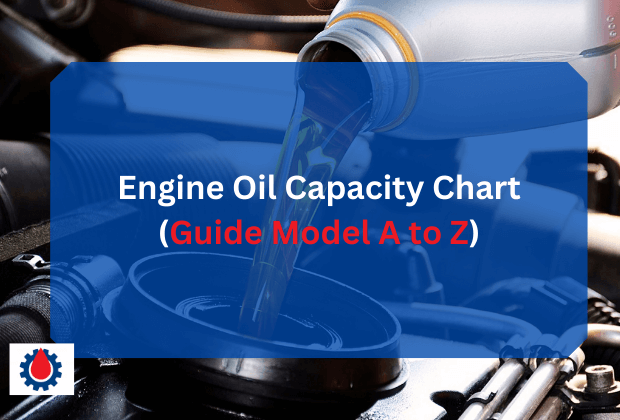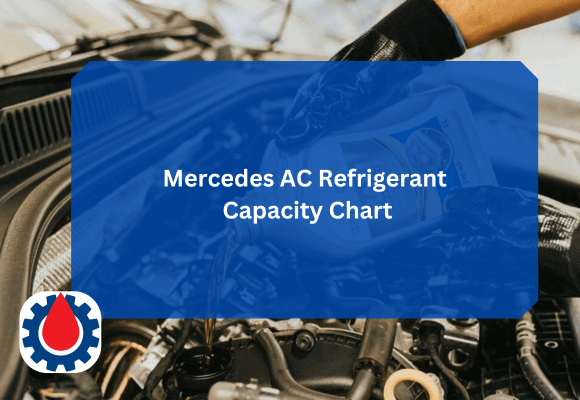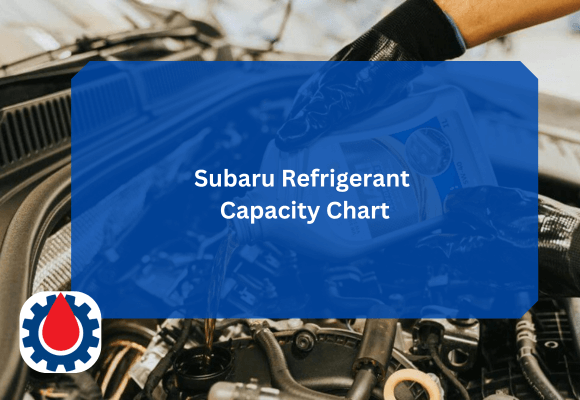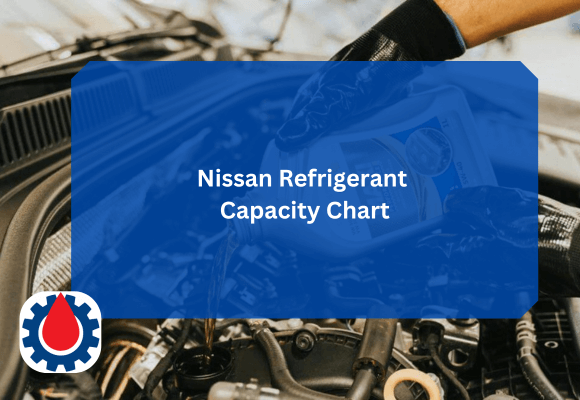An Engine Oil Capacity Chart provides a quick reference guide for vehicle owners, mechanics, and technicians, indicating the amount of engine oil required for various car models.
This chart ensures that the correct volume of oil is used during oil changes, which is essential for maintaining optimal engine performance, fuel efficiency, and longevity.
It typically lists car models alongside their corresponding sump or oil capacity in liters, helping users prevent underfilling or overfilling, both of which can lead to engine damage or reduced performance.
Accurate oil capacity management is crucial for proper lubrication, cooling, and protection of engine components.
Engine Oil Capacity Chart
Honda
| Model | Sump Capacity (Lts) |
|---|---|
| City | 4.3 |
| Jazz | 4.3 |
| Brio | 2.8 |
| Civic | 4.3 |
| Accord | 4.3 |
| CRV | 4.3 |
| Amaze (Petrol) | 4.0 |
| Amaze (Diesel) | 8.0 |
Read Oil Drain Plug Torque Chart(Vehicles A to Z)
Hyundai
| Model | Sump Capacity (Lts) |
|---|---|
| Santro | 3.0 |
| i10 | 3.0 |
| i20 – 1.2 | 3.0 |
| Getz – 1.1 (Petrol) | 3.0 |
| Verna 1.6 | 4.3 |
| i20 – 1.4 | 4.3 |
| Elantra (Petrol) | 4.3 |
| Getz – 1.3 | 3.8 |
| Verna (Diesel) | 3.9 |
| Elantra (Diesel) | 6.6 |
| Sonata (Petrol) | 4.2 |
| Sonata (Diesel) | 6.5 |
| Tucson (Diesel) | 7.5 |
| Santafe (Diesel) | 7.5 |
Related SCAG Kawasaki Engine Oil Capacity(Oil Capacities by Model)
Toyota
| Model | Sump Capacity (Lts) |
|---|---|
| Liva (Petrol) | 2.9 |
| Liva (Diesel) | 4.2 |
| Etios (Petrol) | 2.9 |
| Etios (Diesel) | 4.2 |
| Innova (Petrol) | 3.2 |
| Innova (Diesel) | 6.0 |
| Corolla Altis (Petrol) | 3.1 |
| Corolla Altis (Diesel) | 6.7 |
| Camry (Petrol) | 5.5 |
| Qualis (Diesel) | 5.9 |
| Landcruiser | 7.8 |
| Prado | 3.3 |
Read Ariens Oil Capacity(Accurate Oil Capacity Insights)
Ford
| Model | Sump Capacity (Lts) |
|---|---|
| Fiesta New (Petrol) | 2.6 |
| Ecosport (Petrol) | 4.0 |
| Figo (Petrol) | 5.5 |
| Fiesta Classic (Petrol) | 5.5 |
| Ikon (Petrol) | 7.5 |
| Ikon 1.8 (Diesel) | 2.5 |
| Endeavour (Diesel) | 5.0 |
| Ecosport (TDci Diesel) | 5.0 |
Read Can You Mix Different Weights of Oil(Hack or a Disaster)
Maruti Suzuki
| Model | Sump Capacity (Lts) |
|---|---|
| SX 4 (Diesel) | 3.2 |
| Ertiga (Diesel) | 3.2 |
| Dezire (Diesel) | 3.2 |
| Swift (Diesel) | 3.2 |
| Ritz (Diesel) | 3.2 |
| SX 4 (Petrol) | 6.5 |
| Swift (Petrol) | 5.5 |
| Ritz (Petrol) | 5.5 |
| Wagon R (New-Petrol) | 4.5 |
| A-Star (New-Petrol) | 4.5 |
| Alto (New-Petrol) | 4.5 |
| Omni (MPFI-Petrol) | 8.5 |
| 800 (MPFI-Petrol) | 8.5 |
| EECO (Petrol) | 5.2 |
| Estilo (Petrol) | 4.0 |
| Grand Vitara (Petrol) | 5.2 |
Related New Holland Engine Oil Capacity(Manufacturer’s Guide)
Tata
| Model | Sump Capacity (Lts) |
|---|---|
| Indica Vista (Diesel) | 3.6 |
| Manza (Diesel) | 3.6 |
| Indica (Petrol) | 3.3 |
| Indigo (Petrol) | 3.3 |
Benz (Mercedes-Benz)
| Model | Sump Capacity (Lts) |
|---|---|
| A-Class | 5.5 |
| B-Class | 5.5 |
| C-Class | 6.0 |
| E-Class | 6.7 |
| CLS-Class | 9.0 |
| GL-Class | 8.5/11.5 |
| M-Class | 7.8 |
| S-Class | 7.8 |
| SLK-Class | 5.2 |
Read What Happens If You Use a Smaller Oil Filter(7 Warnings)
Fiat
| Model | Sump Capacity (Lts) |
|---|---|
| Punto (Petrol) | 3.2 |
| Punto / Linea (Diesel) | 3.5 |
| Linea (Petrol) | 3.2 |
BMW
| Model | Sump Capacity (Lts) |
|---|---|
| 3-Series | 6.9 |
| 5-Series | 9.5 |
| 6-Series | 9.0 |
| 7-Series | 9.0 |
| X1 | 6.9 |
| X3 | 6.9 |
| X5 | 9.5 |
| X6 | 9.5 |
| M3 | 9.0 |
| M5 | 9.0 |
| Z4 | 9.0 |
Read Normal Engine Oil Temperature(Find Out the Safe Range)
Nissan
| Model | Sump Capacity (Lts) |
|---|---|
| Sunny (Petrol) | 4.0 |
| Sunny (Diesel) | 4.5 |
| Micra (Petrol) | 4.0 |
| Micra (Diesel) | 4.5 |
| Evalia (Petrol) | 4.0 |
| Evalia (Diesel) | 4.5 |
| Teana J31 / J32 | 8.0 |
| X-Trail T30 / T31 | 6.5 / 8.0 |
Audi
| Model | Sump Capacity (Lts) |
|---|---|
| A4 | 5.0 |
| A6 | 6.0 |
| A8 | 9.0 |
| Q3 | 8.2 |
| Q5 | 6.9 |
| Q7 | 9.0 |
| TT | 4.5 |
| R8 | 5.2 / 7.4 |
Related Engine Oil Consumption Chart(For All Engine Types)
Mahindra
| Model | Sump Capacity (Lts) |
|---|---|
| Scorpio CRDE | 6.5 |
| Scorpio M-Hawk | 6.5 |
| Bolero | 6.5 |
| Thar | 6.5 |
| Jeep | 6.5 |
| Pick-up | 6.5 |
| XUV 500 | 7.0 |
| Xylo | 7.0 |
| Quanto | 7.0 |
Chevrolet
| Model | Sump Capacity (Lts) |
|---|---|
| Beat (Diesel) | 3.2 |
| Tavera (Diesel) | 3.5 |
| UVA / Sail / Enjoy (Diesel) | 3.3 |
| Cruze / Captiva (Diesel) | 6.5 |
| Optra (Diesel) | 4.0 |
| Spark (Petrol) | 3.3 |
| Beat (Petrol) | 3.8 |
| UVA (Petrol) | 3.8 |
| Aveo (Petrol) | 3.8 |
| Optra (Petrol) | 3.8 |
NOTE: Always check and verify the above oil capacity with your vehicle’s manual before adding oil. After filling, use the dipstick to confirm the oil level is within the recommended range. If unsure, consult a professional mechanic.Related Engine Oil Compatibility Chart(A Detailed Guide)
FAQ
How many litres of engine oil should I put in?
The amount of engine oil required depends on your car’s make and model. Most cars typically require between 3 to 8 liters of oil. To know the exact amount, consult your vehicle’s manual or refer to an engine oil capacity chart for your specific car model.
What is the engine oil capacity?
Engine oil capacity refers to the total volume of oil a car’s engine can hold. This capacity varies by vehicle and engine size, ranging from 3 to 8 liters for most passenger cars. It’s important to check your car’s specifications to determine the correct amount.
How much oil to put in a car when empty in litres?
When the engine is completely empty, you should refill it with the recommended capacity listed in the owner’s manual or engine oil chart. For most cars, this is usually between 3 to 6 liters, but larger vehicles like trucks or SUVs may require up to 8 liters.
Is 2 liters of oil too much?
For smaller engines, 2 liters could be too little, while for larger ones, it might be far too little. If you’re topping off the oil, 2 liters may not overfill the engine, but always check your dipstick after adding oil to ensure the correct level. Overfilling beyond the recommended level can cause issues.
What happens if engine oil is overfilled?
If engine oil is overfilled, it can cause excessive pressure within the engine, leading to leaks from seals and gaskets. It may also result in oil foaming, which reduces its lubricating properties and can cause damage to engine components. In severe cases, overfilling can lead to engine damage.
Related Diesel Engine Oil Temperature Chart(Comprehensive Guide)
What is a good amount of oil in an engine?
A good amount of oil in an engine is just below the maximum level on the dipstick. It’s essential to maintain the oil within the recommended range, ensuring it is not too low (causing insufficient lubrication) or too high (leading to overpressure and foaming).




